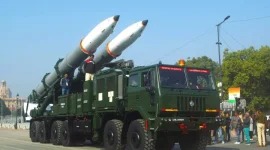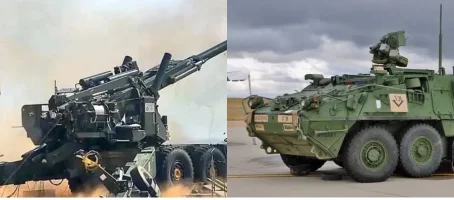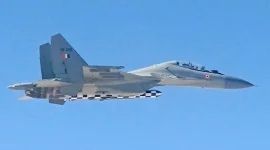- Views: 3K
- Replies: 23

Azerbaijan's recent acquisition of JF-17C (Block-III) fighter jets from Pakistan has significantly altered the military balance in the South Caucasus region, leaving Armenia in a vulnerable position. This move has placed increasing pressure on Armenia, a close ally of India, to bolster its air defence capabilities.
The JF-17C, a joint venture between Pakistan and China, is a modern, multi-role combat aircraft capable of undertaking a wide array of missions. Its induction into the Azerbaijani Air Force poses a considerable threat to Armenia's aging fleet of Su-30SM and Su-25 aircraft.
In response to this evolving security landscape, Armenia may be looking to India for military assistance. The Indian-made LCA-Tejas Mk1A, a lightweight, single-engine fighter jet with advanced avionics and weapons systems, could provide Armenia with a much-needed deterrent against potential aggression from Azerbaijan.
The potential sale of the LCA-Tejas Mk1A to Armenia is not without its complexities. India must carefully weigh the geopolitical implications, the cost-benefit analysis, and the potential impact on its domestic defence industry. However, the deal could also solidify India's position as a key player in the region and strengthen its ties with Armenia.
This development comes against the backdrop of Azerbaijan's growing defence cooperation with Pakistan and Turkey, both of whom supported Azerbaijan in its conflict with Armenia last year. The sale of JF-17C jets to Azerbaijan further solidifies this alliance and highlights Pakistan's efforts to expand its influence in the region.
As the geopolitical situation in the South Caucasus continues to evolve, India's response to Azerbaijan's acquisition of the JF-17C will be closely monitored. The decision to provide military assistance to Armenia could have far-reaching consequences for the balance of power in the region and India's strategic interests.



